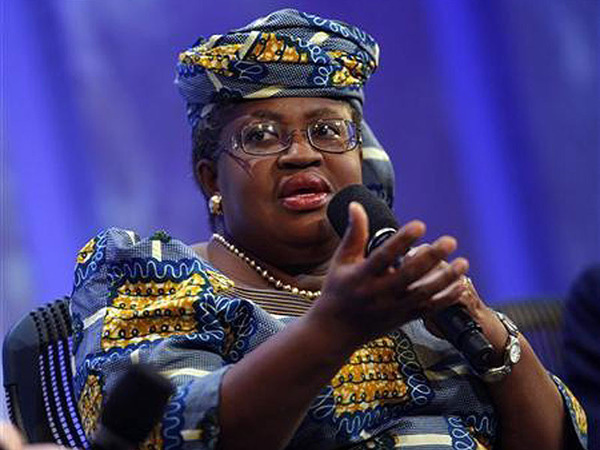Amid several of this administration’s corruption scandals, an out of control recurrent expenditure and dwindling National income, the Coordinating Minister of the Economy, Dr Ngozi Okonjo Iweala has continued to say she is not to be blamed for Nigeria’s economic misfortunes.
Her stance was communicated most recently in a statement released by Paul Nwabuikwu, the Minister’s spokesman, on Thursday.
The statement said: “Though government is continuous and the minister has no desire to shirk her responsibilities, the effort to personalize these issues on the basis of inaccurate information must be roundly refuted.”
It explained: “The first point made by some senators is that she is responsible for the rising recurrent expenditure which, according to them, rose ‘from 69 per cent in the 2013 Budget to 76 percent in the 2014 is inaccurate.’” He said the decline in the budget base is one of the factors responsible for the upsurge in the recurrent budget.
“The total expenditure of N4.64 trillion in the proposed 2014 is about a 7% decline from the 2013 budget level of N4.98tr. From a mathematical standpoint, this reduction in the budget base will result in a slight increase in the weight of the recurrent expenditure in the budget, which in absolute terms, has increased from 2013 levels”, the media aide said.
Commenting on her comments, a Lagos State based consultant, Mike Egube said “the minister must not know what her role is. Is she not the one responsible for the economy. Yet the national purse is leaking, costs are swelling and she believes it is not her responsibility to improve upon the situation. She is clearly an IMF and World Bank agent let loose upon our common patrimony.”
The House of Reps Committe on Finance also accused the minister of superintending over the economy with the largest domestic borrowing profile in the world.
Clerk of the committee, Mr. Farouk Mustapah said, “The Minister’s latest attempt was in a statement issued from her office, citing a reduction in domestic borrowing and reasons for the seemingly uncontrollable rise in the recurrent expenditure.
“For us, we have carefully refrained from responding to the minister’s assertions and claims over the past couple of weeks, in view of the fact that a public hearing at which the actual state of our economy will be known has already been scheduled for March 3 to 6, 2014.
“Nonetheless, we are compelled to say, as we have often stated, that no one is excited about the celebrated insignificant decline in domestic borrowing. What the people are asking is, borrowing at what cost? What is the cost of these so-called reduced domestic borrowings, how are they serviced? How are the decisions taken? Beyond that, since the minister is in the habit of comparing our situation with those of other countries, why would she not tell Nigerians that the cost of our domestic borrowing remains one of the highest in the whole world.”




Leave a Reply